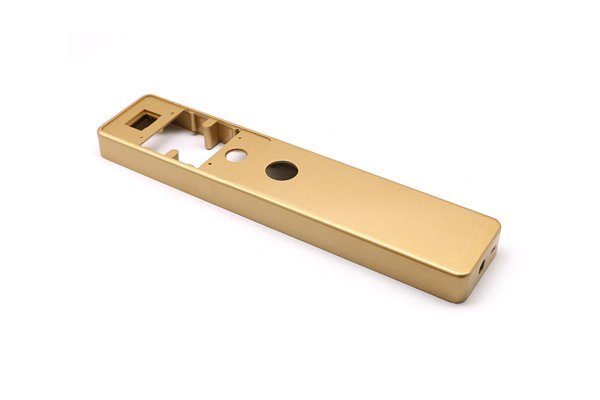Did you know that the accuracy of threaded holes can significantly impact the performance and longevity of mechanical assemblies? In fact, studies show that improperly aligned or inaccurately sized threaded holes can lead to over 30% of assembly failures in mechanical engineering projects. For manufacturers striving to ensure quality and reliability in their products, achieving precise threaded holes through CNC machining is more essential than ever.
As advancements in technology continue to redefine manufacturing practices, CNC (Computer Numerical Control) machining has emerged as a game changer, allowing manufacturers to achieve exceptional precision, repeatability, and efficiency in producing threaded holes. In this blog, we discuss the challenges related to the accuracy and fit of threaded holes and how CNC machining can be optimized to address these issues effectively.
—
Understanding the Importance of Threaded Holes
Threaded holes are essential in various industries, including automotive, aerospace, and electronics, serving as the standard mechanism for fastening components together. The integrity of these connections is paramount; therefore, a clear understanding of how to produce threaded holes that meet the specifications for size, depth, pitch, and alignment is vital.
Types and Functionalities of Threaded Holes
Typically, a threaded hole must meet standard specifications (such as those defined by Unified National Thread Standard or ISO Metric Standards) to ensure compatibility and functionality with standard fasteners.
—
CNC Machining: The Pathway to Precision
When it comes to creating threaded holes, CNC machining provides a multitude of advantages over traditional machining methods. Let’s delve into the mechanisms through which CNC machining enhances accuracy, quality control, and overall production efficiency in creating threaded holes.
—
CNC machining is a manufacturing process that utilizes computer software to control machine tools. This method allows for the automatic operation of machines, which results in high precision and reduced manual intervention throughout the machining process.
Benefits of CNC Machining:
—
Quality and accuracy start in the design phase. Miscalculations or design flaws can directly influence the machining process.
Best Practices:
By implementing these techniques, manufacturers can ensure that the specifications for sizes and angles are precisely executed during machining.
—
The tools used during CNC machining play a vital role in achieving the accuracy of threaded holes.
Key Considerations:
—
The material being machined affects the cutting parameters and the chosen approach. Different materials have different machinability properties.
Materials Impacting Thread Creation:

Understanding these properties ensures optimal machining processes and product quality.
—
A correctly set-up CNC machine is crucial to the successful creation of precise threaded holes.
Key Setup Steps:
—
Quality Control and Inspection
To ensure accuracy and quality throughout the machining process, implementing quality control measure is essential.
Implementing inspection systems during the machining process ensures that threaded holes remain compliant with specifications.
Techniques:
Advantages of In-Process Inspection:
Once machining is complete, final inspection ensures the final product meets design requirements.
Final Inspection Tools:
—
Even with advanced CNC methods, challenges may arise when producing threaded holes.
Common Issues and Solutions:
—
In summary, CNC machining has transformed how manufacturers produce threaded holes with precision and reliability. By following best practices throughout design, programming, tool selection, material considerations, machine setup, and inspection, manufacturers can ensure accuracy and an optimal fit in threaded holes.
The importance of these techniques cannot be overstated; they not only directly influence product quality and longevity but also enhance overall operational efficiency and reduce costs associated with rework and material waste.
As industries continue to innovate and evolve, understanding and implementing CNC machining techniques for precision threaded holes remains a critical focus for manufacturers aiming to maintain a competitive edge in today’s fast-paced market. By reflecting on the strategies outlined in this blog, manufacturers can achieve unparalleled accuracy in threaded hole production, ultimately ensuring the integrity of their mechanical assemblies and the success of their engineering projects.
In this era of continuous improvement in manufacturing techniques, now is the time to rethink your processes—ensuring that the crucial aspect of threaded holes is skillfully executed can very well lead to your next successful project or product launch.
Related Posts
- What is the impact of brass hardness on CNC machining and how does it influence machining quality?
- How does the quality management system of a CNC machining plant work to ensure efficiency and precision?
- What are the application requirements of CNC machining in the surface treatment of medical devices?






